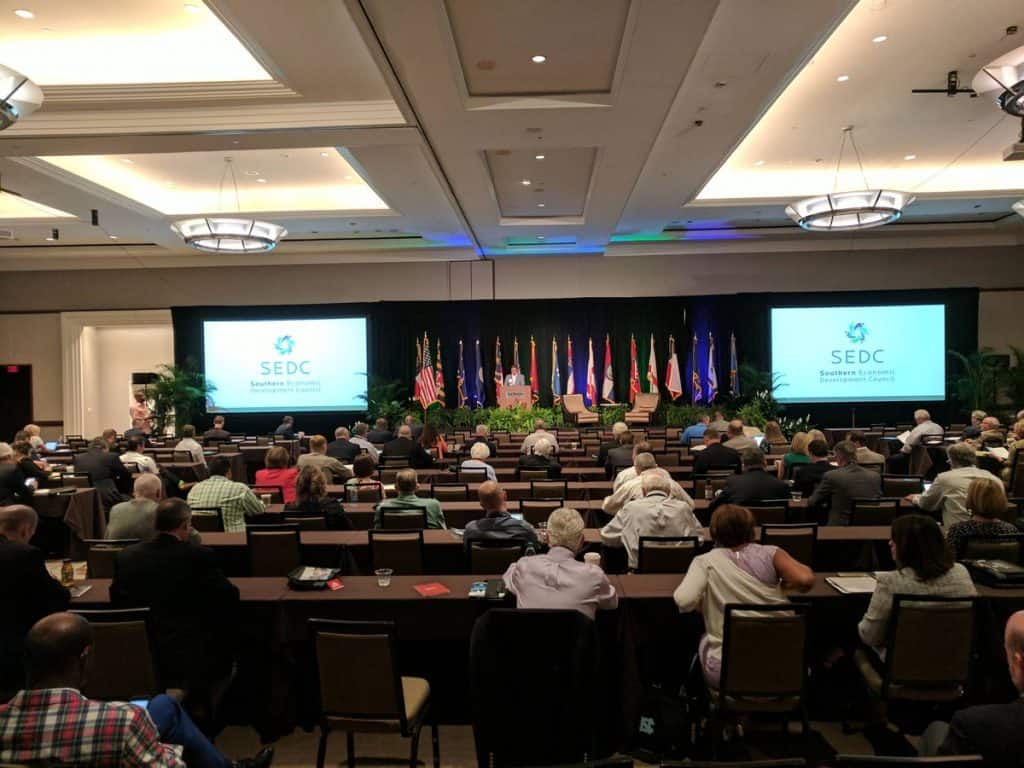
Economic Developer’s Outlook Positive at SEDC
Economic development leaders from Southern states gathered at the Westin Hotel in Charlotte, NC for the annual Southern Economic Development Council (SEDC) annual conference. “Redefining Competitiveness” was the theme for this year’s conference which drew over 300 participants.

The conference featured Marcus Smith, CEO of Speedway Motors. Key topics during the conference included reshoring, political trends, economic issues, infrastructure, and talent attraction.
Ted Abernathy, with Economic Leadership, provided an optimistic outlook for the U.S. economy and capital investment in economic development projects. According to Abernathy, while the Southeast has been the “darling of the U.S. economy for the last 25 years,” more growth is happening in the Western states. When looking at GDP growth, North Carolina and South Carolina have had little growth despite a large influx of population. However, Abernathy was very optimistic about the levels of investment in the Southeast and the Carolinas.
Talent attraction was another hot topic at the Conference. DCI’s Andy Levine and Rebecca Gehman, and Avalanche Consulting’s Amy Holloway addressed strategies to help communities attract and develop talent.
Chris Chung with the Economic Development partnership of North Carolina facilitated a panel discussion on Trends in Site Selection that featured Robin Spinks, Greenfield; Kathy Mussio, Atlas Insight; and Mark Sweeney, McCallum Sweeney. The panelists provided an update on economic development activity and provided advice to local economic developers.
“Meet deadlines, be accurate, answer the question, meet deadlines and be prepared. Professionally, thoroughly, accurately, and timely, said Sweeney. “We want to see that a community has a vision and is working towards it.”
Sweeney stressed balancing the tangible and intangible when providing information to site consultants and potential clients. “The ability of our clients to get information is the biggest thing,” said Mussico. “Each of these things are all in your control.”
Right-to-work has been a powerful tool for Southern states in business recruitment the last 25 years. However, now that 28 states in the U.S. are right-to-work states, the panel discussed how the Southern states might be losing a marketing advantage. “For the Southeastern states, it’s (right-to-work) been a powerful card. If you are just relying on that card, now over half the country has that card,” Spinks said. “You have to go deeper to differentiate yourself.”






